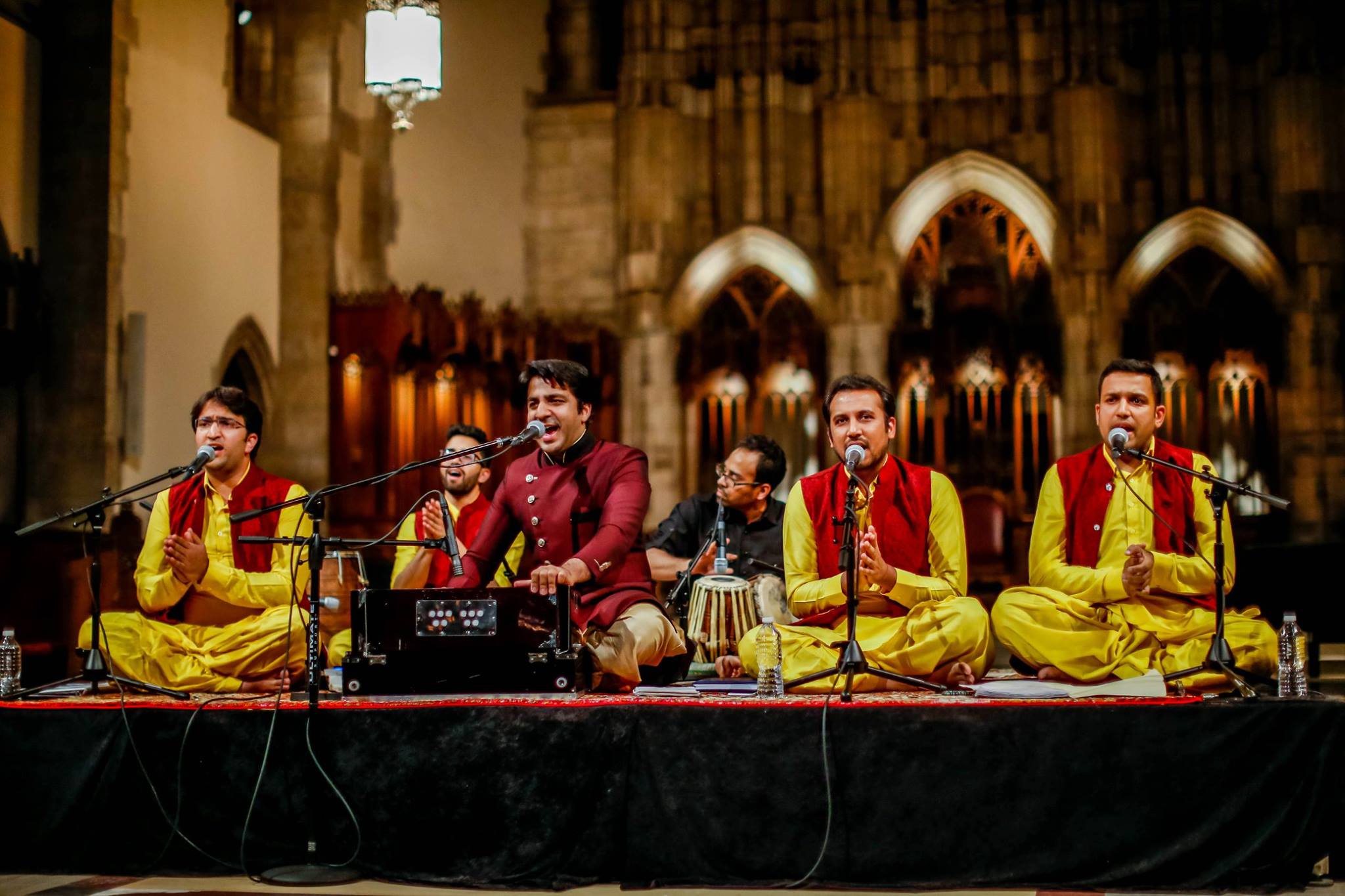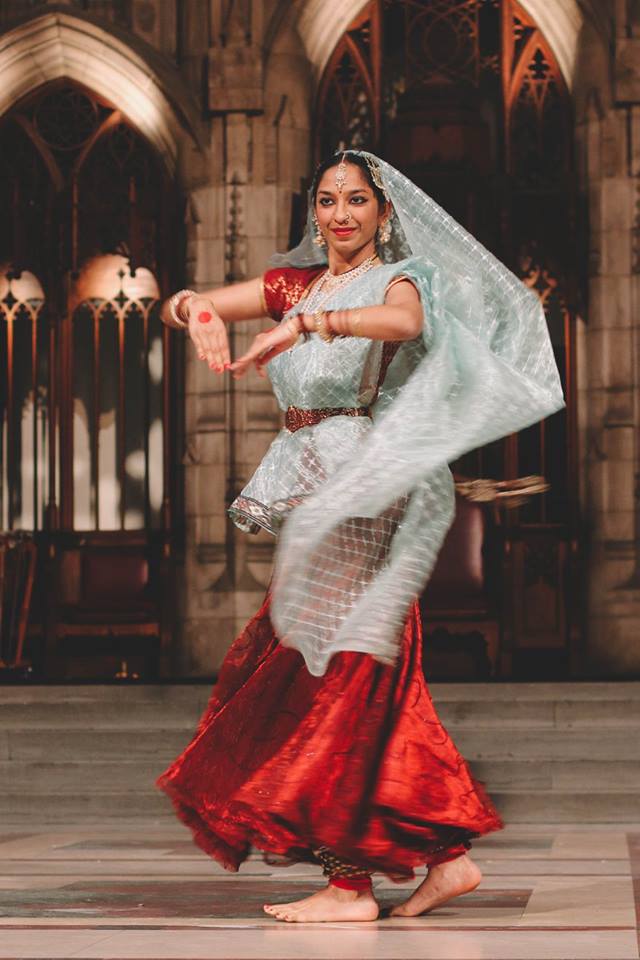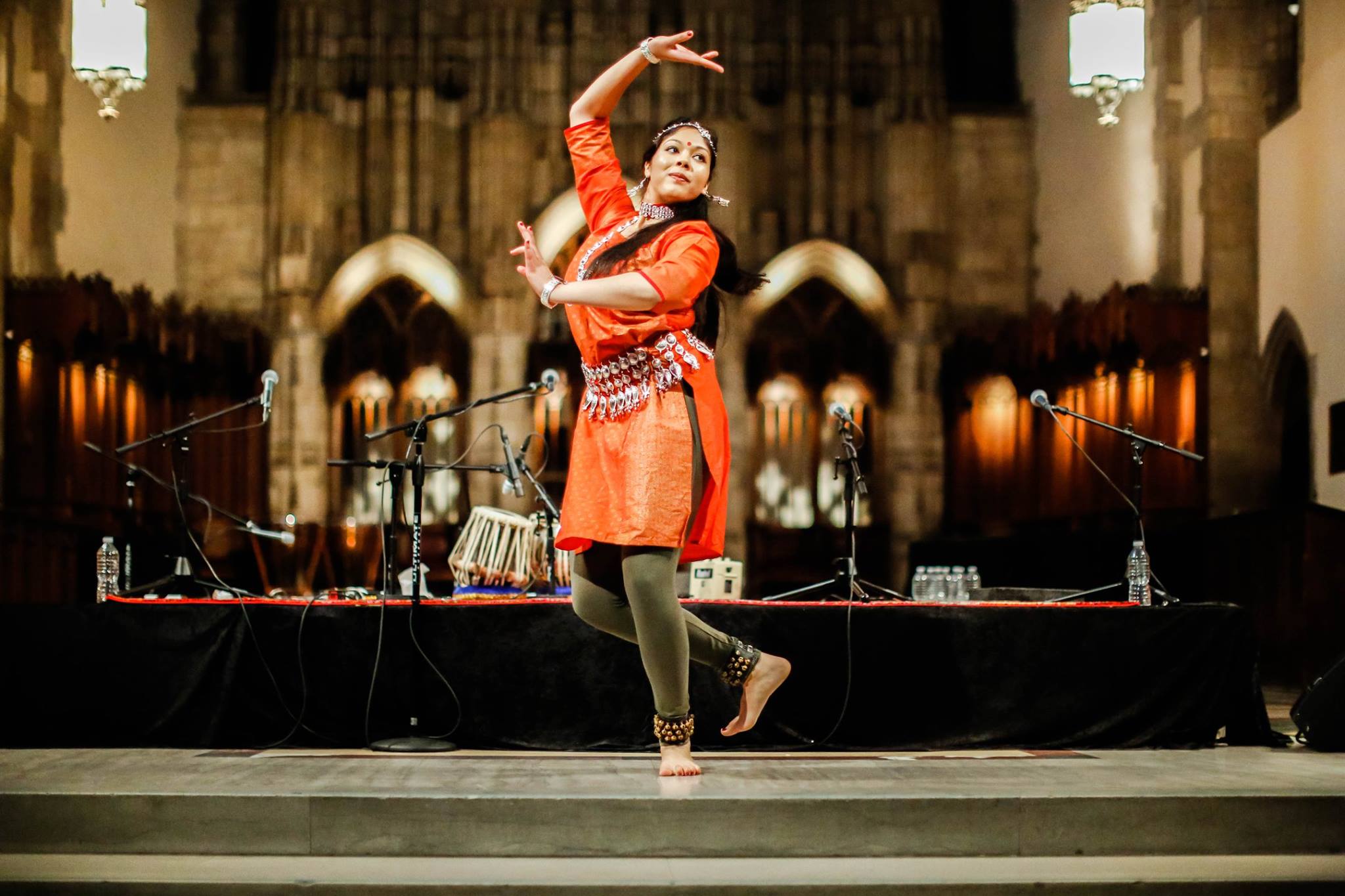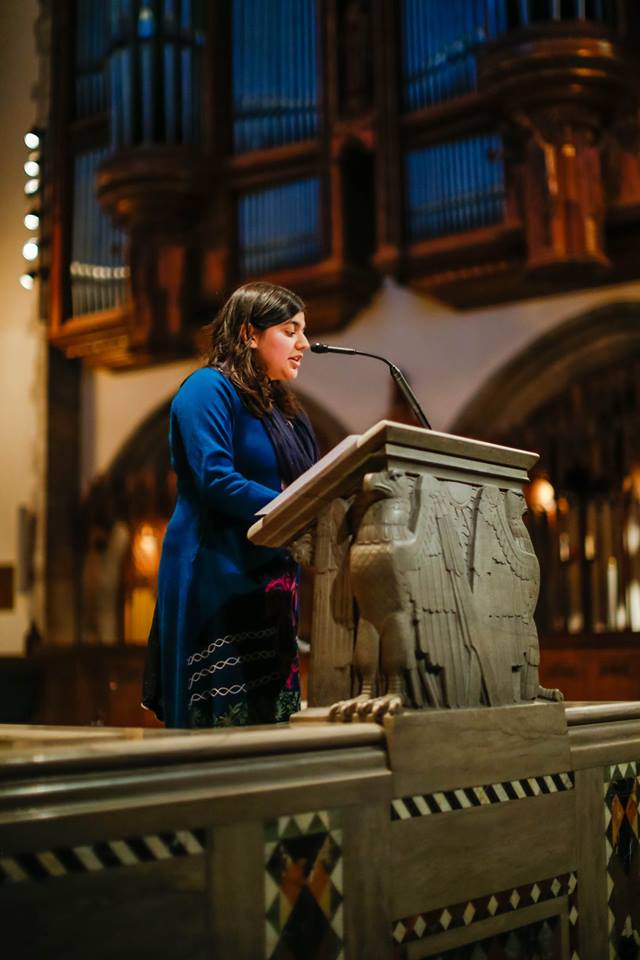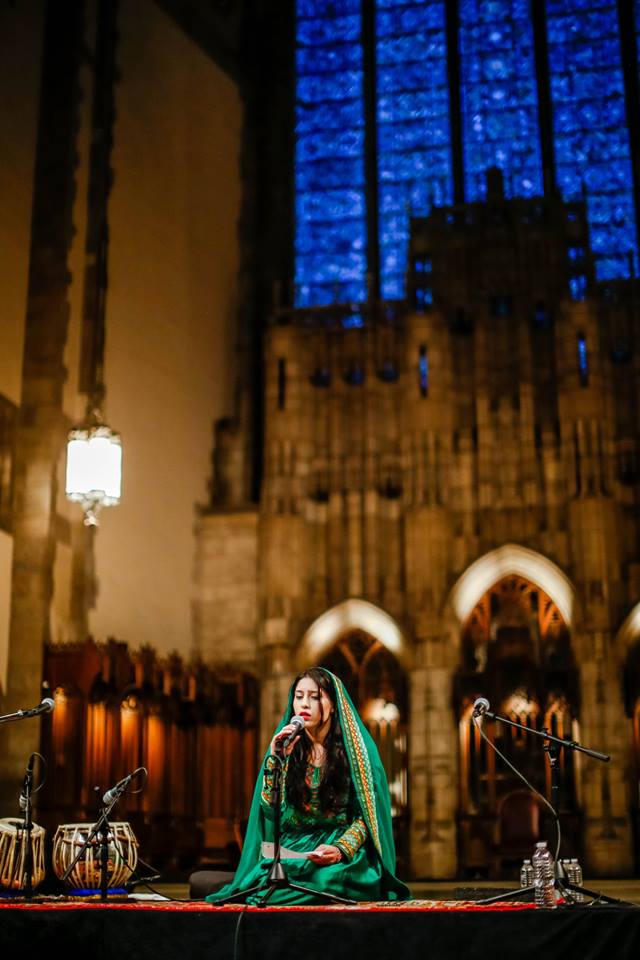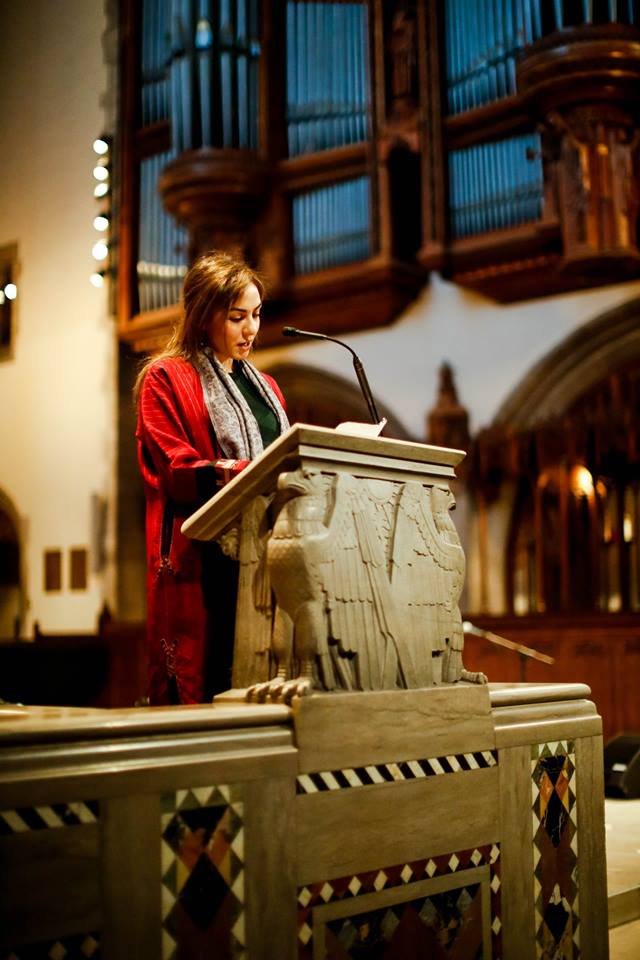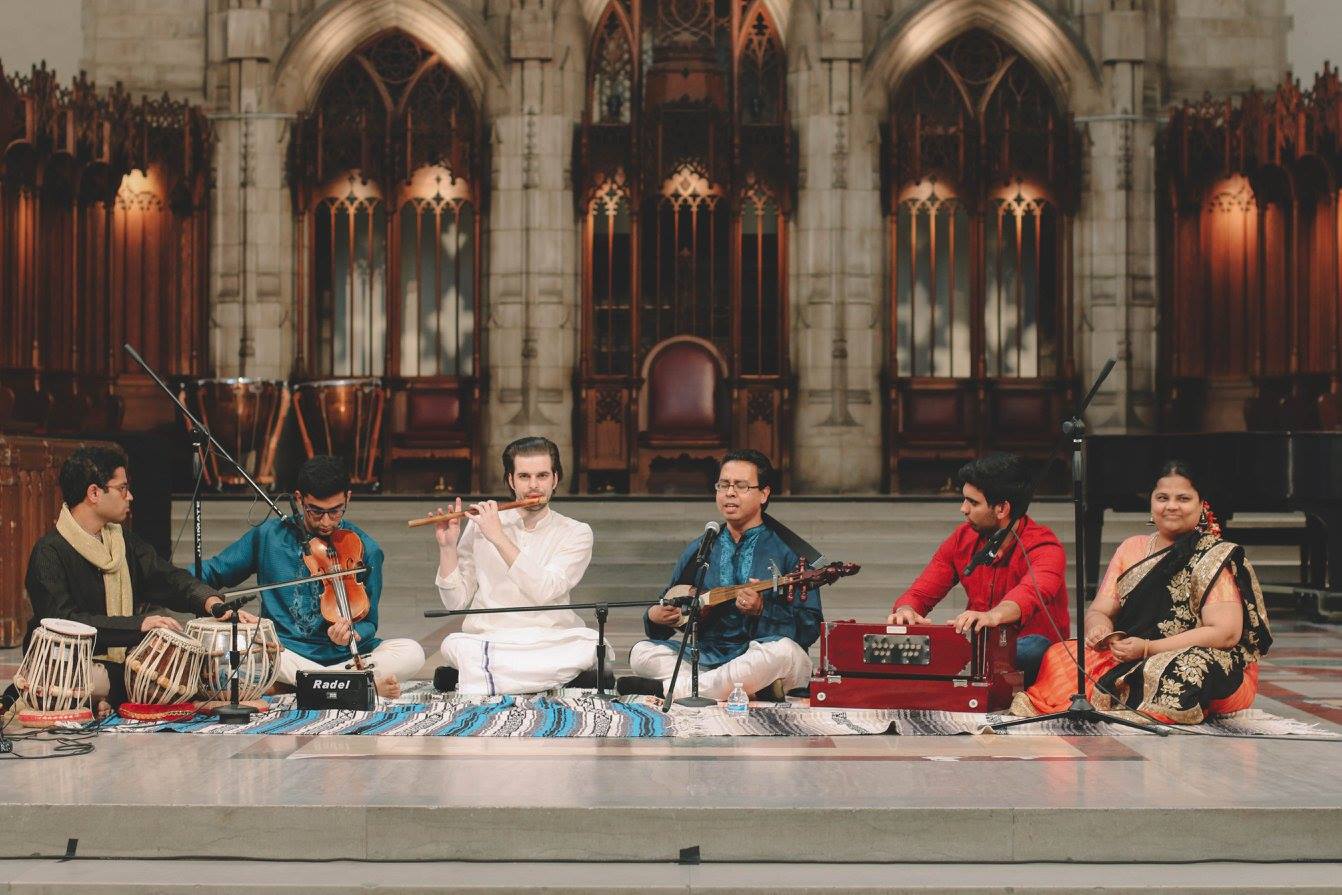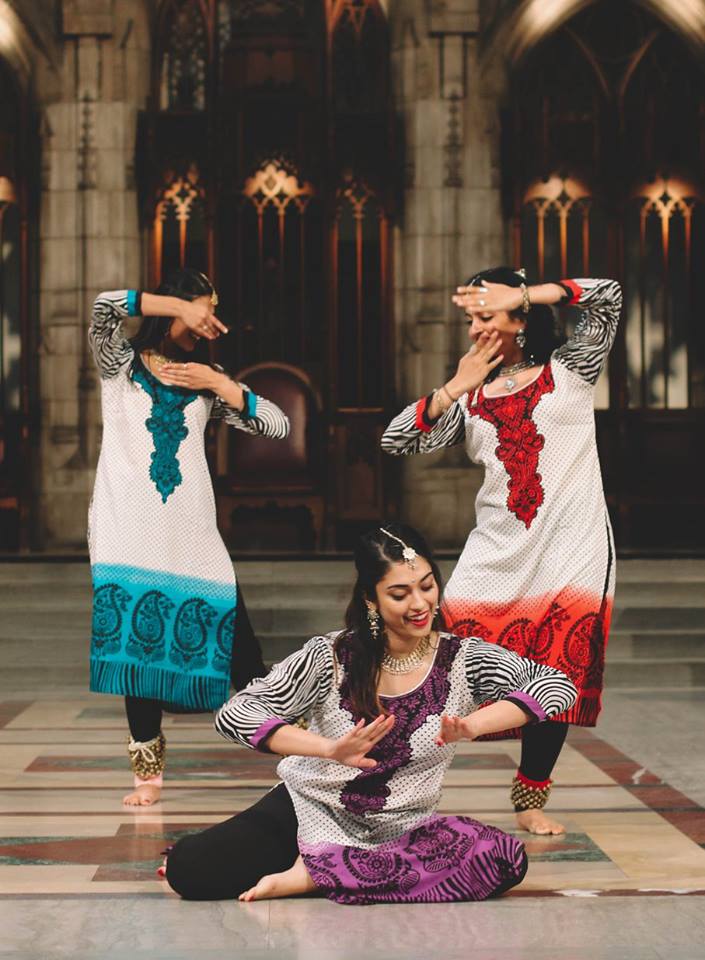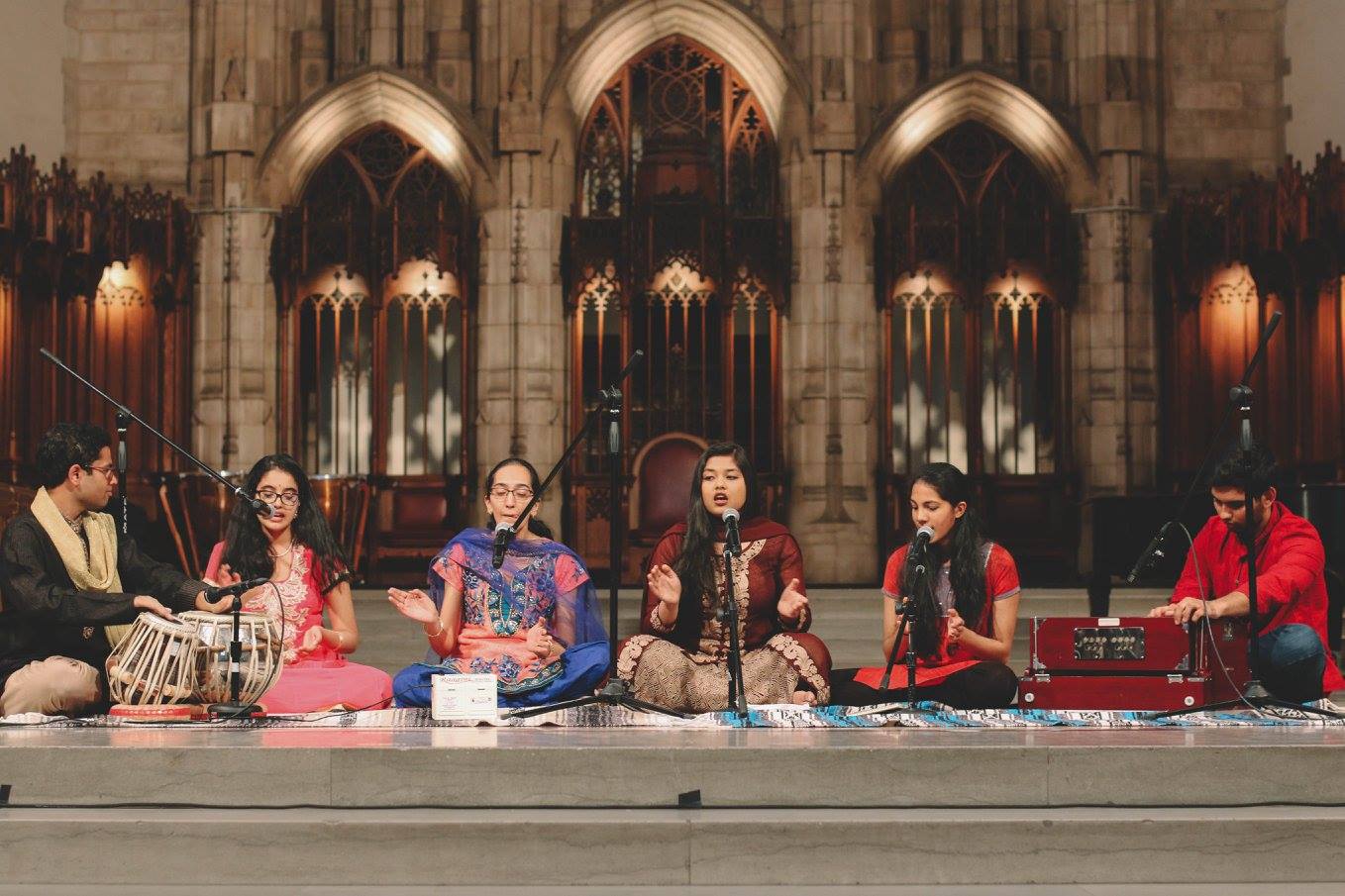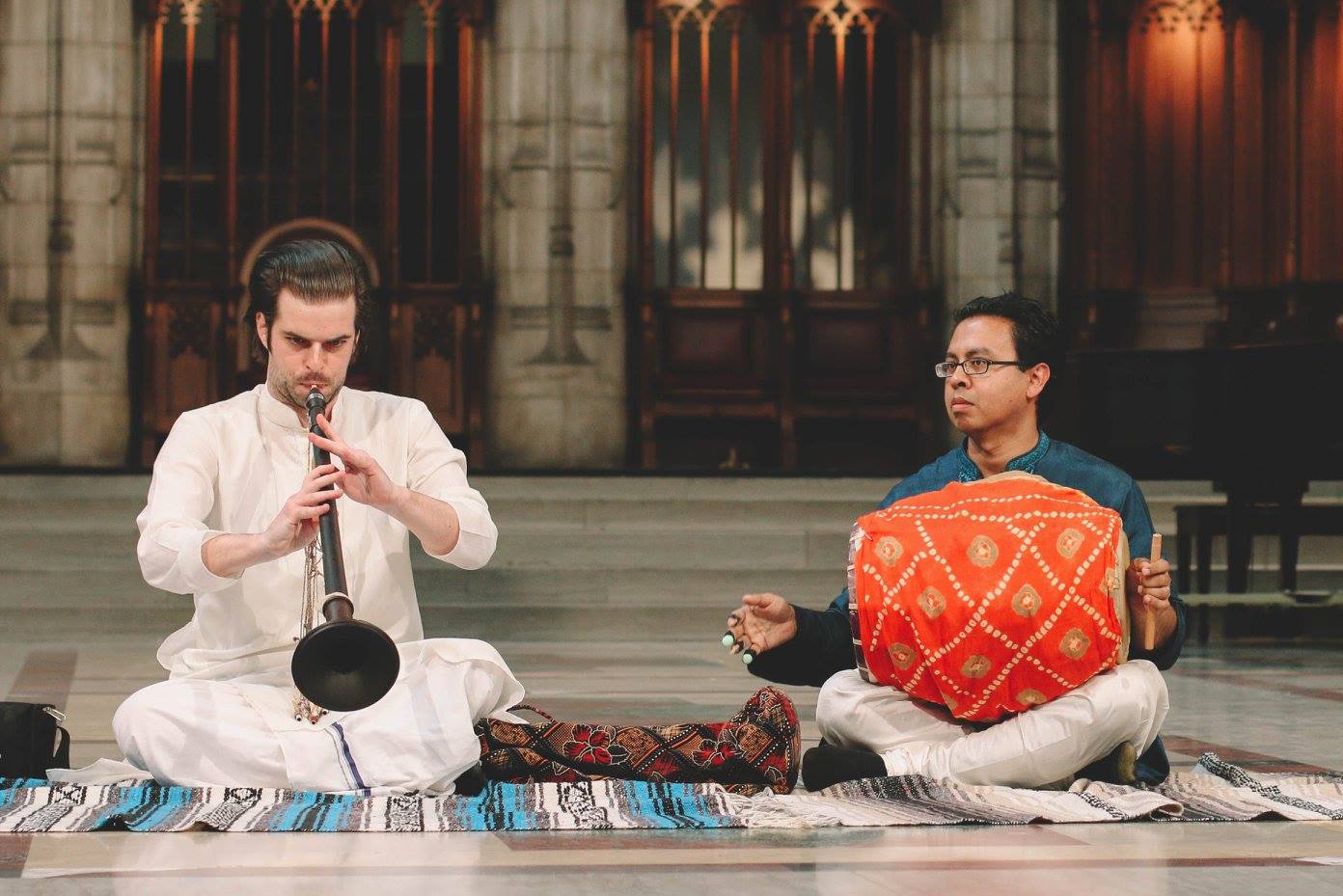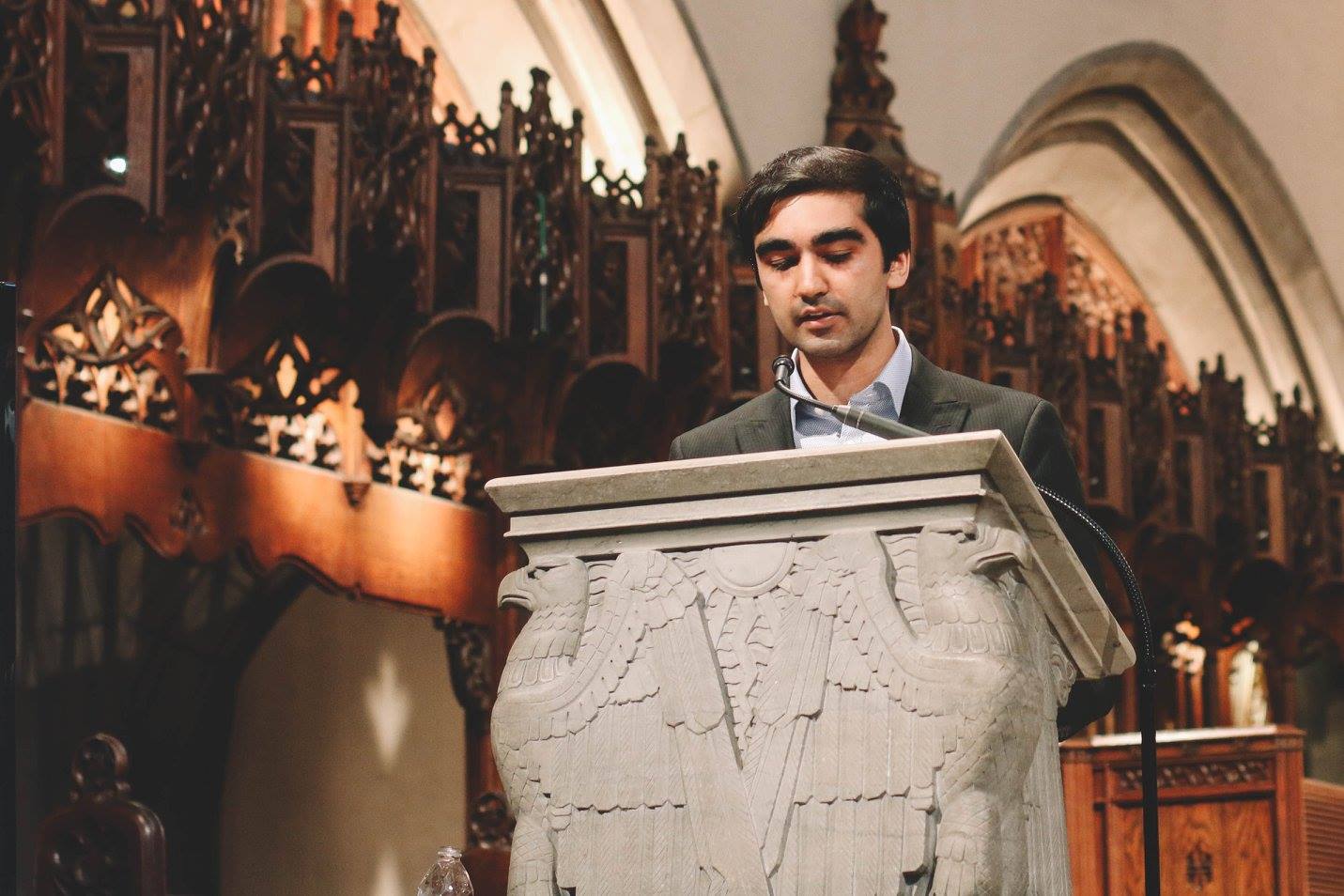Arts Initiatives
Voices of Bhakti
Since July 2019, I have been curating Voices of Bhakti, an Instagram-based digital archive of South Asian poetry and art on the themes of religion, caste, and gender.
I started Voices of Bhakti because I believe strongly in the power of art to challenge the rising religious nationalism and polarization that is taking place within South Asia and the South Asian diaspora.
So far, I have featured over 400 poems from nearly 40 different languages, spanning thousands of years and several countries. Each post in this archive consists of an English translation, the original text of the poem, a transliteration, and an accompanying visual art piece.
I prioritize highlighting poetry and art from marginalized communities: women, caste-oppressed people, LGBTQ+ people, and the diaspora. Many of the poems and translations I share are being posted online for the very first time.
In October 2022, I began collaborating with scholar Preethi Ramaprasad to curate a digital performance series called “Performing Voices of Bhakti.” We are working with a cohort of multidisciplinary South Asian artists to bring some of this poetry to life. Over the next year, these artists will engage with and perform selections of poetry from Voices of Bhakti. This series is being supported by Dhvani India Performing Arts Society of Central Ohio. My work has also been supported through a mini grant from Kundiman’s Northeast Regional Group.
A Meeting of Two Seas
All photos by Kiran Misra
From 2017-2019, my friends Nur Banu Simsek, Nadine Faisal, and I organized an annual interfaith concert series at the University of Chicago’s Rockefeller Chapel. The title, “A Meeting of Two Seas,” comes from a 17th-century treatise written by Mughal prince Dara Shukoh, Majma-ul-Bahrain (Confluence of Two Seas), which explores philosophical similarities between Hinduism and Islam.
Our first concert, in 2017, highlighted the ways in which Hindus and Muslims have jointly contributed to musical, dance, and literary traditions across the Indian subcontinent, from Tamil Nadu to Bengal to Punjab. In 2018, we highlighted the Hindu, Muslim, and Sikh poets who spoke out against orthodoxy and prejudice. In 2019, we expanded our focus to celebrate the musical traditions of three migrant and refugee communities: India’s Bene Israel Jewish community, Iranian Baha’i refugees, and Andalusian Muslims and Jews. Our performers included both students and professional musicians from the Chicago area and beyond.
These concerts were the first collaboration between UChicago’s Hindu and Muslim student groups in over a decade, and paved the way for further collaboration in the form of group discussions and annual Hindu-Muslim iftar dinners during Ramadan. Some of the pieces we presented were performed in the United States for the very first time. Our 2018 concert, featuring Riyaaz Qawwali, was the first-ever qawwali performance in Rockefeller Chapel. Each concert drew 250-400 attendees.
Year 1 (April 22, 2017)
Year 2 (April 28, 2018)
Year 3 (April 28, 2019)
TM Krishna at University of Chicago
Vidwan TM Krishna is an acclaimed Carnatic vocalist and activist, and one of my favorite musicians. In September 2017, I sent out an email to several departments at UChicago, proposing to bring him to campus for a concert and public lecture. To my surprise, I received an enthusiastic response, and I worked closely with UChicago Presents to explain what a Carnatic concert entails, assist with logistics, and publicize the concert through on- and off-campus channels.
Around one year later, in October 2018, TM Krishna came to campus for a concert at the Reva and David Logan Center for the Arts and a public lecture at International House. His performance launched a now-annual world music series, Music Without Borders. I also wrote a brief overview of Carnatic music for the concert program; you can read it here.










